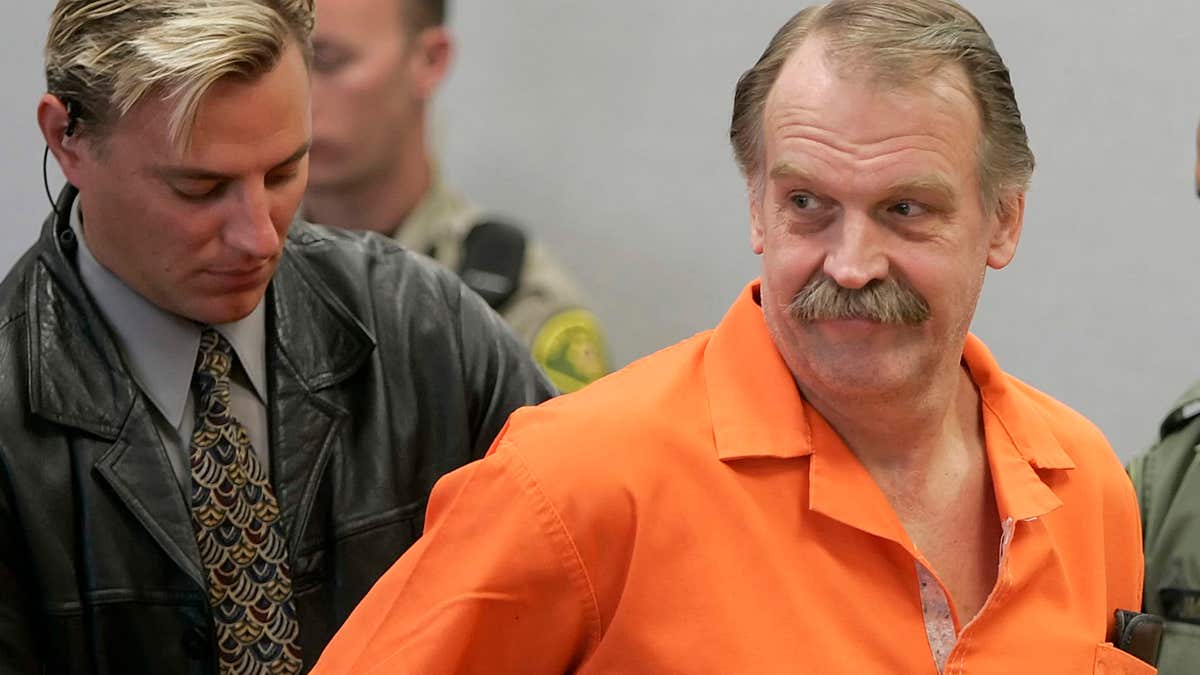
FILE - In this Oct. 6, 2005 file photo, convicted murderer and death row inmate Ron Lafferty is handcuffed after his court hearing in a courtroom in Provo, Utah. (AP)
SALT LAKE CITY – A judge denied an appeal Friday from a Utah death row inmate who argued that his sentence of death by firing squad is cruel and unusual punishment.
U.S. District Judge Dee Benson wrote in his ruling that the U.S. Supreme Court has never overturned a state's chosen method of execution as cruel and unusual, though he said inmate Ron Lafferty can still press his claims in Utah state court.
Utah recently approved the use of a firing squad as a backup if lethal injection drugs are unavailable.
Lafferty, 74, had argued that the firing squad would cause a lingering, unnecessarily painful death. He chose to die that way when he was sentenced 30 years ago and such a choice was available, but his lawyers now argue that he wasn't legally competent to do so.
Attorneys for Lafferty did not immediately return a message seeking comment. He is likely still years away from a possible execution date.
Utah is the only state that allows executions by firing squad if lethal injection drugs aren't available. State lawmakers said the approval was a practical matter of choosing a backup plan to the drugs that have come under increasing scrutiny.
Opponents, however, say firing squads are barbaric.
Lafferty is the longest-serving death row inmate in Utah and one of the inmates who is closest to a possible execution date. He was convicted in the 1984 deaths of his sister-in-law, Brenda Lafferty, and her baby daughter. He claimed the killings were directed by God because of the woman's resistance to his beliefs in polygamy.
Ron Lafferty's firing squad arguments came in a federal court motion asking a judge to put his case on hold so he could pursue complaints about evidence handling and testimony. Arguments against capital punishment are common in death penalty appeals, but Utah's move to bring it back as a backup method could bring new scrutiny.
While Benson declined to halt the federal case, he said Lafferty is still free to pursue his other claims.









































